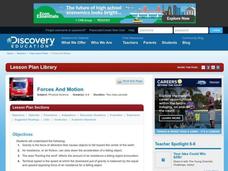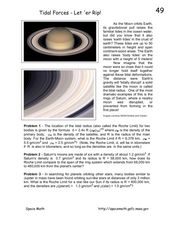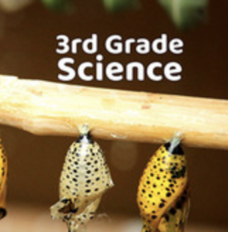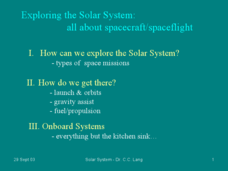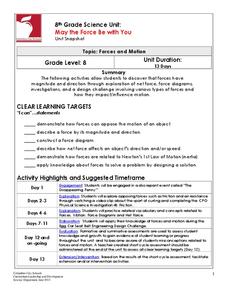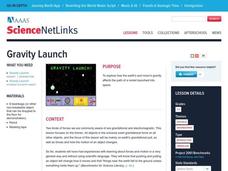Curated OER
Forces and Motion
Young scholars build parachutes for chicken eggs. In this physics lesson, students describe the forces acting on a falling object. They predict which of the three parachute models they made has the best chance of keeping the egg intact...
Curated OER
Which Falls Faster?
Second graders study force and what it does. In this motion lesson students complete a demonstration on force and gravity and share their ideas.
Curated OER
Physical Setting: Physics Exam 2004
Twelve pages of mostly multiple-choice questions comprise this comprehensive New York Regents physics exam. It covers an entire year's worth of physics curriculum and requires about three hours for completion. Review the questions to...
Curated OER
Mobile Forces
Young scholars design and build original mobiles and consider how the forces of gravity and convection air currents affect the finished piece. They explore how an understanding of balancing forces is important in both art and engineering...
Curated OER
Labeling Forces Correctly!
Define six common forces: propulsion, air resistance, water resistance, friction, gravity, and upthrust. A picture of a Smart Car is displayed with arrows showing all of the forces acting on it when it is motion. A picture of a rubber...
Curated OER
By Bernoulli, Where's Gravity?
Students observe a 1/4 inch by 2 inch piece of paper that is held vertically downward under the bottom lip, noting that the paper is pulled down by gravity. They predict what happens to the paper if air is blown out. After air is blown,...
Curated OER
Forces in Action
In this motion and forces worksheet, students label forces they see in 6 different diagrams. Students draw arrows to show forces acting, and draw and label their own diagram of forces in action.
Curated OER
Tidal Forces-Let'er Rip!
For this tidal forces worksheet, students read about the gravitational pull from the moon that causes the ocean tides. Students solve 3 problems including finding the Roche or the tidal radius for the Earth and Moon, comparing the Roche...
Curated OER
Planet Impact!
An amazing information-packed lesson plan allows your space scientists to crash a virtual comet into Jupiter and learn how the angle, distance, speed, and mass influence the outcome. Click on "Back to the Lesson" to access the...
Utah Education Network (UEN)
Utah Open Textbook: 3rd Grade Science
How do we interact with Earth? Scholars learn about the sun, Earth, moon, forces, gravity, and heat sources by reading a text and performing hands-on demonstrations. They also differentiate between living and non-living things using...
Curated OER
Dependence of Light Intensity on Distance
Hopefully you have a sensor interface for your physics class to use with graphing calculators when collecting data with a light sensor. If so, read on. Use this resource for learners to predict and then test whether or not the intensity...
Curated OER
Exploring the Solar System: All About Spacecraft/Spaceflight
Rarely do you find resources that reach high school astronomy learners. Here is something at their level! The physics of flyby missions is explained via several examples. Landing, penetrating, and roving spacecraft are examined. Diagrams...
Glynn County School System
Light, History, Gravity, Distance, Relativity, and Space-Time
Let the star's color be the guide! The color of a star indicates its temperature and its mass and distance affect the gravitational force. The lesson presentations address these concepts as well as how the theory of special relativity...
K12 Reader
What Is Gravity
This cross-curricular reading comprehension worksheet asks kids to read a short passage about gravity and then to answer questions about the article.
Columbus City Schools
May the Force Be with You
You won't have to force your classes to complete these engaging activities! Through exploration, young scientists learn that force has both magnitude and direction. They draw force diagrams, investigate force models, and complete a...
Curated OER
Gravity Launch
Students examine how gravity affects launching rockets into space. In this physical science lesson, students review the concept of gravity and use an interactive online site, "Gravity Launch," to simulate a rocket launch.
Curated OER
Gravity, Forces, and Inertia
Pupils participate in assessments involving gravity, forces, and inertia. They select from a menu of options assessments they would like to complete including worksheets, drawing posters, watching videos, creating crossword puzzles, and...
Curated OER
Forces in Action
In this forces in action worksheet, students identify types of forces, label forces of action, and draw forces of action as they respond to 6 short answer questions.
Curated OER
Gravity: It's GREEEAAATTT!
Students calculate effects of gravitational force on planets, discuss the effects of weightlessness on the human body and describe and demonstrate how objects in a state of free fall are accelerated by gravity at an equal rate.
Curated OER
Physics: Forces and Motion
Students recognize the effect of Earth's gravity on an object's weight. In this force and motion lesson students understand the role of gravity when you drop an object. Students experiment with small items. Students measure in Newton's....
Curated OER
Force and Motion
Students experiment with force and motion. For this force and motion lesson, students test gravity using a variety of objects. Students rotate through a series of stations which use force, motion, friction, and inclines. Students predict...
Curated OER
Gravity and Falling Objects
Students watch experiments to define gravity and what gravity's function. In this gravity instructional activity, students watch video segments about experiments conducted with two objects to see what gravity does with...
Teach Engineering
The Great Gravity Escape
Groups simulate an orbit using a piece of string and a water balloon. Individuals spin in a circular path and calculate the balloon's velocity when the clothes pin can no longer hold onto the balloon.
CK-12 Foundation
Newton's Apple
Scientists state that the higher something is above the earth, the greater the gravitational potential energy. Does this mean there is more gravity acting on the moon than on an apple falling from a tree? Scholars adjust the distance...
